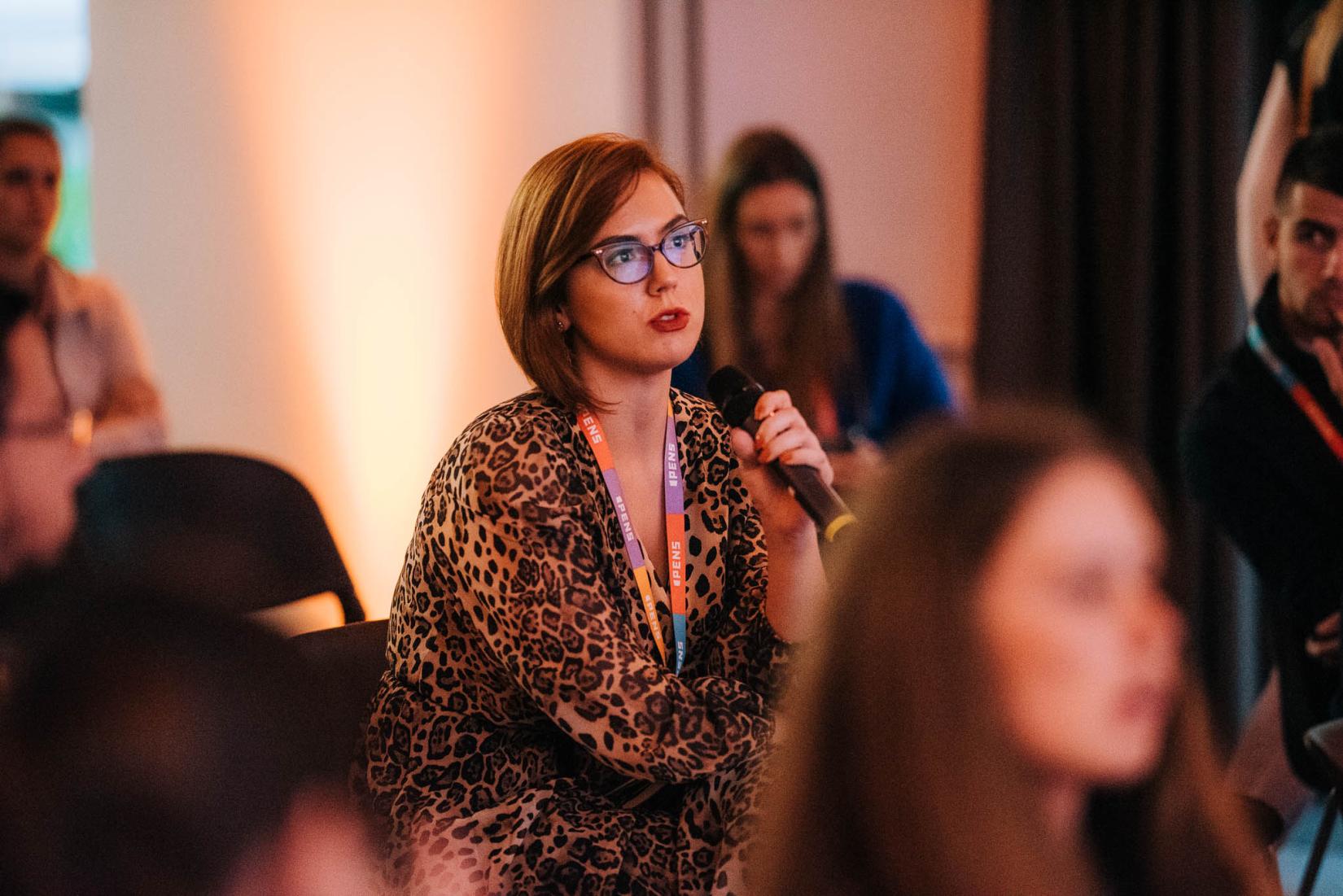Western Balkan Youth Speak Out for Gender Equality and Social Cohesion
13 mars 2023

More than fifty young people from Albania, Bosnia and Herzegovina, North Macedonia, Serbia, and Kosovo* , engaged in a virtual dialogue to address the root causes of gender inequalities and their implications for social cohesion. This was the first regional consultation organized by UN Women Albania as part of the UN’s ‘Youth 4 Inclusion, Equality & Trust’ project funded by the UN Secretary-General’s Peacebuilding Fund, aiming to support young men and women from the Western Balkans to promote constructive and fact-based narratives, and contribute to building trust, intercultural dialogue, cultural diversity, gender equality and social cohesion in the region.
Participants were from academia and civil society. Discussions were focused on five topics: Negative legacies of the past; Nationalistic and anti-gender narratives; Social acceptance and social distance; Gender equality for social cohesion and the Covid-19 pandemic.
The youth identified a strong link between the undermining of democratic systems, rising nationalism and social vulnerability. Youth, especially youth from the Western Balkans, was discussed both as a group vulnerable to nationalism and anti-gender equality movements reinforcing gender polarization, but also as a social group countering the anti-gender equality narrative. Participants called on youth to play a greater role in policymaking, advocacy, media literacy, and education on social issues.
The participants recognized the role of family and education in maintaining and reproducing naturalized inequalities in the private sphere. While family is an important means of socialization, the youth emphasized the strong influence of patriarchal values in the nuclear family. As girls grow up, female submission is presented positively; women are expected to internalize submission as a natural trait to be considered “a good, well-educated girl”. One participant pointed out that children must be raised equally.
Many young people in the region are almost "apathetic"; and have little interest in critically engaging with mainstream narratives: “There is a lot of hate speech propaganda in the media, especially on social media channels, that young people are mostly following. So, youth start to believe that the only alternative to the status quo they are living in, is the world portrayed by nationalistic rhetoric, because it is easier to be involved in, and simpler to believe” Harisa Bojčić (BiH).
“Nationalism is manifesting in a way that actually uses traditional gender roles as means of defining national identity and this is strongly linked to what we’ve seen rising in young people, especially young men” Artiola Babuni (Kosovo).
The participants agreed that the #metoo movement in the Western Balkans was a huge success in terms of encouraging women to speak up on issues generally considered taboo: “When we talk about gender equality in the WB, the gender issues we all face are very similar. Even with different backgrounds and differences in how we grew up, we can all find some middle ground and talk about the issues that we all face. So, it is important to have this understanding, and to have solidarity” Una Milic (Serbia).
The discussions on politics and gender roles highlighted the role of quotas in raising women’s representation in politics. However, women in politics remain underrepresented in terms of effective power, leadership, and decision-making. “Women are often described in politics as “trophies”, showing that “the numbers are achieved”, but what remains unobserved is the aspect related to “how women engage in politics”. Women should be more proactive, negotiate between parties, lead negotiating processes, policy making and parties’ political discourses”. Klajdi Kaziu (Albania).
With traditional gender norms still playing an active role in the region, including fueling divisive narratives and deepening persisting gender inequalities and forms of discrimination, UN Women has taken the lead on confronting gender equality dimension to social cohesion challenges.
The youth ideas and perspectives emerging from this initial consultation will contribute to the regional research being conducted to advance the project’s overall goal to empower, engage and encourage young men and women to drive the achievement of gender equality, mutual understanding, constructive narratives and respect for diversity across the region.
Collaboratively, UNDP, UNFPA, UNESCO, UN Women, relevant local ministries, municipal and youth councils, youth political parties, media, academic and cultural institutions, and civil society organisations are working on fulfilling the above mentioned goals, financially supported by the UN Secretary-General’s Peacebuilding Fund.
*References to Kosovo shall be understood in the context of the UN Security Council Resolution 1244 (1999).


















